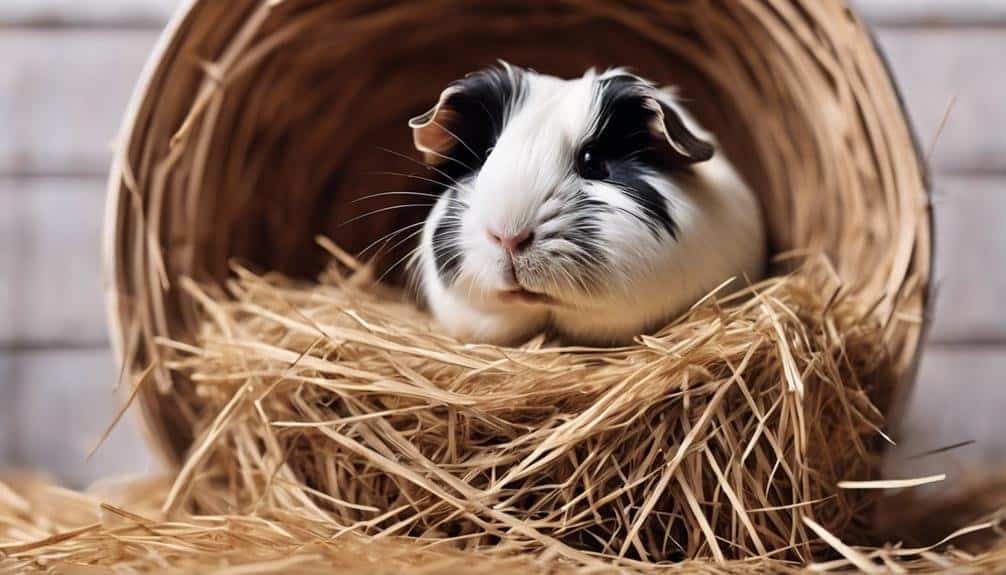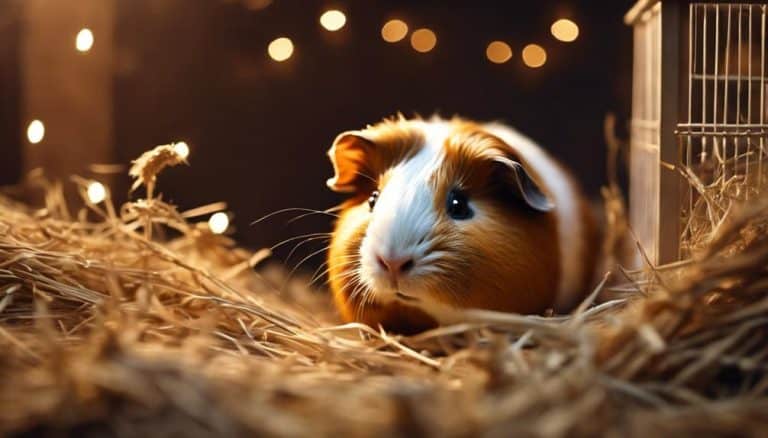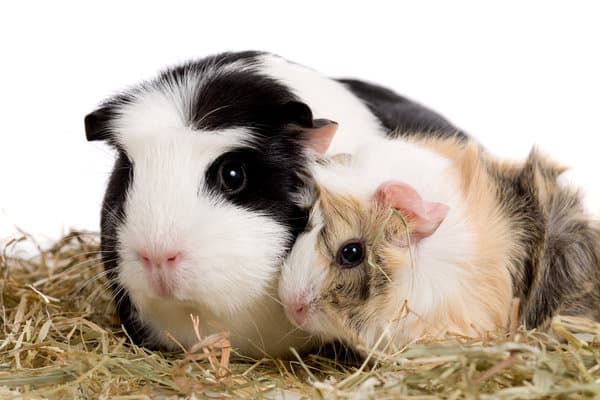How Do Guinea Pigs Hibernate: A Comprehensive Guide
Curious about the mysterious ways of guinea pigs during certain seasons? Let’s unravel the truth behind their behavior and the common misconception of hibernation.
Ever pondered how these adorable creatures cope with shifts in temperature? Stay with us to understand the intricate details of guinea pig habits that might surprise you.
Understanding Guinea Pig Hibernation Patterns
When observing guinea pig behavior during colder seasons, it’s crucial to understand that they don’t hibernate due to their biological characteristics and evolutionary history. Guinea pigs don’t have the genetic predisposition to enter hibernation, unlike some other rodents. Their origins in warmer climates where hibernation was unnecessary have shaped this behavior. Instead, guinea pigs rely on their owners to provide an environment with a consistent temperature and access to food. During colder months, guinea pigs may exhibit slight changes in behavior in response to temperature variations, but this isn’t hibernation.
Maintaining an ideal temperature for guinea pigs is essential as they’re sensitive to extreme cold. A small amount of exposure to low temperatures can lead to health issues such as respiratory infections or hypothermia. Therefore, caring for guinea pigs during colder seasons involves ensuring they’ve access to warmth and monitoring them closely for any signs of discomfort or illness.
Factors Influencing Guinea Pig Hibernation
Factors influencing guinea pig hibernation include their biological inability to enter a state of hibernation, their evolutionary history in warm climates, and their continuous need for food to sustain their metabolic processes. Guinea pigs do not possess the genetic predisposition to hibernate, unlike some other rodent species. Their native habitats in the warm regions of South America did not demand the adaptation of hibernation for survival. Additionally, guinea pigs are constant eaters, requiring a steady intake of food to fuel their metabolic activities. This need for a continuous supply of nutrients prevents them from entering a hibernation-like state, as they lack the ability to store fat reserves for extended periods. To emphasize the importance of providing continuous access to food for guinea pigs, the table below illustrates the essential role of diet in their well-being:
| Food | Frequency | Quantity |
|---|---|---|
| Hay | Daily | Unlimited |
| Fresh Vegetables | Daily | 1 cup per pig |
| Pellets | Daily | 1/8 cup per pig |
Signs of Guinea Pig Hibernation

In observing guinea pigs for signs of hibernation, we must remain vigilant for indications of extreme lethargy and reduced body temperature. It’s crucial for pet owners to be aware of these signs, especially during the colder months when guinea pigs are more susceptible to temperature-related issues. Here are some key signs to look out for:
- Decreased Activity Levels: A hibernating guinea pig will exhibit a significant decrease in movement and may appear unusually still or unresponsive.
- Cold to the Touch: Feel your guinea pig’s body temperature; if it feels colder than usual, it could be a sign of reduced metabolic rate associated with hibernation.
- Unresponsiveness to Stimuli: Lack of reaction to touch, sound, or movement may indicate a guinea pig entering a state of torpor.
- Changes in Eating and Drinking Habits: A hibernating guinea pig may show a decline in food and water intake, leading to weight loss and dehydration if not addressed promptly.
Being attuned to these signs and providing mental stimulation and proper care can help prevent misinterpretation of hibernation-like behavior in guinea pigs. Remember, any suspicion of hibernation requires immediate veterinary attention to ensure the well-being of your beloved pet.
Differences in Wild Vs. Domesticated Guinea Pig Hibernation
Wild and domesticated guinea pigs exhibit distinct behaviors when it comes to hibernation. While wild guinea pigs live in environments where food is consistently available, they don’t hibernate. This is because they’ve evolved survival mechanisms that involve seeking warmth and staying active to maintain their body temperature during colder periods.
Domesticated guinea pigs, which have been bred for captivity, also don’t hibernate. They’ve continuous access to food provided by their owners, eliminating the need for hibernation as a means of conserving energy during food scarcity.
Understanding these differences is crucial for guinea pig owners to provide the right care and environment for their pets. Guinea pigs, whether wild or domesticated, still need warmth and proper nutrition to thrive. By recognizing that guinea pigs don’t hibernate and instead have specific responses to colder temperatures, owners can ensure their pets remain healthy and active throughout the year.
Tips for Helping Guinea Pigs Hibernate Safely

To ensure the safety and well-being of your guinea pigs during colder months, it’s essential to provide a cozy shelter with proper insulation. Here are some tips for helping guinea pigs stay safe and comfortable in winter:
- Monitor the Temperature: Keep a close eye on the temperature in their environment, aiming to maintain it within the recommended range to prevent them from getting too cold.
- Offer Extra Bedding: Providing additional bedding in their shelter can help guinea pigs conserve energy and stay warm during the chilly months.
- Warm Hiding Spots: Create warm hiding spots in their enclosure where they can snuggle up and feel secure, helping them cope with the colder weather.
- Regular Check-ups: Regularly check on your guinea pigs for any signs of discomfort or hypothermia. If you notice any concerning symptoms, seek prompt veterinary attention to ensure their well-being.
Conclusion
In conclusion, understanding the behavior of guinea pigs during different seasons is crucial for their well-being. While guinea pigs don’t actually hibernate, it’s important to provide them with a suitable environment, monitor temperature fluctuations, and recognize signs of hypothermia.
By following the tips outlined in this guide, you can ensure that your guinea pig stays healthy and happy throughout the winter months. Remember to always prioritize the care and comfort of your furry companion.







